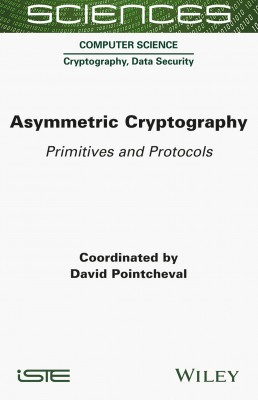
Public key cryptography was introduced by Diffie and Hellman in 1976, and it was soon followed by concrete instantiations of public-key encryption and signatures; these led to an entirely new field of research with formal definitions and security models. Since then, impressive tools have been developed with seemingly magical properties, including those that exploit the rich structure of pairings on elliptic curves.
Asymmetric Cryptography starts by presenting encryption and signatures, the basic primitives in public-key cryptography. It goes on to explain the notion of provable security, which formally defines what “secure” means in terms of a cryptographic scheme. A selection of famous families of protocols are then described, including zero-knowledge proofs, multi-party computation and key exchange.
After a general introduction to pairing-based cryptography, this book presents advanced cryptographic schemes for confidentiality and authentication with additional properties such as anonymous signatures and multi-recipient encryption schemes. Finally, it details the more recent topic of verifiable computation.
1. Public-Key Encryption and Security Notions, Nuttapong Attrapadung and Takashiro Matsuda.
2. Signatures and Security Notions, Marc Fischlin.
3. Zero-Knowledge Proofs, Ivan Visconti.
4. Secure Multiparty Computation, Yehuda Lindell.
5. Pairing-Based Cryptography, Olivier Blazy.
6. Broadcast Encryption and Traitor Tracing, Duong Hieu Phan.
7. Attribute-Based Encryption, Romain Gay.
8. Advanced Signatures, Olivier Sanders.
9. Key Exchange, Colin Boyd.
10. Password Authenticated Key Exchange: Protocols and Security Models, Stanislaw Jarecki.
11. Verifiable Computation and Succinct Arguments for NP, Dario Fiore.
David Pointcheval obtained a PhD in Computer Science and has since worked on the Cryptography Team at the École Normale Supérieure in France. His research focuses on provable security of cryptographic primitives and protocols.